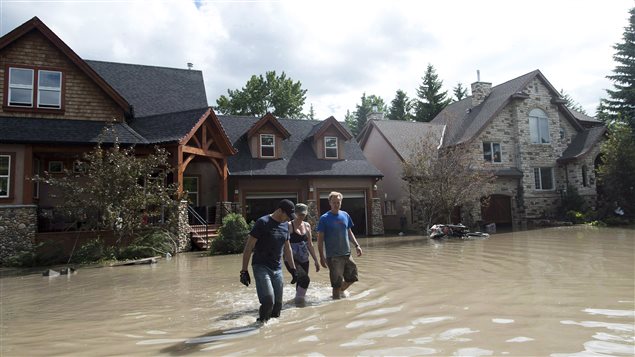Canada’s largest insurance company, Intact Insurance, is paying Waterloo University $4.25 million to help mitigate the risks associated with climate change. Insurance payouts have gone up dramatically in recent years, much of that attributed to storms caused by climate change.
Insurance claims up dramatically
“The impacts of climate change are certainly being felt by the insurance sector, and indeed they’re on the front line, if you will, of having to deal with the negative impacts associated with climate change,” says Blair Feltmate, head of the newly-created Intact Centre on Climate Adaptation at the University of Waterloo. With the funding from the insurance company Intact, the centre’s mandate is to be an incubator for new measures to adapt to climate change.
Feltmate notes the insurance industry has seen claims go up by one billion dollars each year for the last five or six years. Total payouts have gone up from $100-500-million annually to over $1-billion. “Insurers are looking at ways to de-risk the system going forward through adaptation to climate change to lessen the impacts of, in particular, flooding but other factors as well,” says Feltmate.
ListenLessening risk ‘is good for everyone’
Lessening risks lowers claims costs, lowers premiums, lowers the costs to municipalities which must repair infrastructure which may not be insured, so he reasons, is good for everyone.

Damage caused by flood, hail, wind and ice
Flooding has been the biggest source of claims in recent years, accounting for more than 50 per cent of them. Hail, wind, and ice-loading have also caused an increase in claims. The industry blames the increasing claims on climate change.
Centre will assess risk to homes, businesses
To help the adaptation to climate change, the centre plans to offer an inspection program whereby an inspector would go to homes to assess the risks and make suggestion on how to mitigate them.
The centre would also work with corporations to identify key risks to them from climate change.
Preserve wetlands to prevent flooding
The centre also will promote the integrity of wetlands near cities. When these areas are paved over, they can no longer absorb water from heavy rains so flooding is more likely to occur.
Feltmate believes there is great value in the centre’s plan for the insurance industry to work with the university and other groups to find ways to adapt to climate change. “The greater the degree of integration we have with academe, business, the NGO community, First Nations (indigenous groups), legal people, you name it, I think the higher the probability that we’ll come up with good solutions to the problems that we’re facing.”







For reasons beyond our control, and for an undetermined period of time, our comment section is now closed. However, our social networks remain open to your contributions.